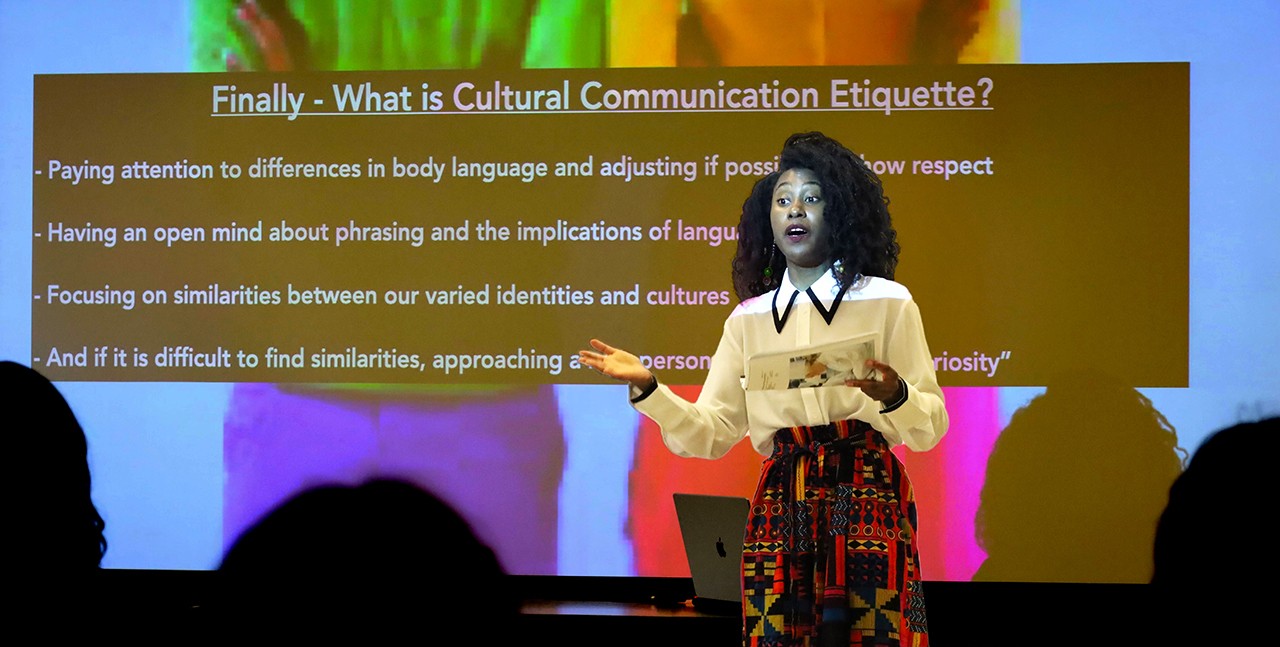
Category: Center for Global and Area Studies

A Successful Lecture Series on Migrant/Native Knowledges
June 04, 2024 Written by Emily Davis and Délice Williams
Our Global and Area Studies lecture series for Spring 2023 was entitled “Migrant/Native Knowledges.” The idea originated from our own experiences co-writing an essay on teaching migration for the MLA’s Approaches to Teaching series, as well as co-leading a seminar on teaching migration for the Delaware Teachers Institute in 2022-23. For the DTI institute, we used excerpts from Sonia Shah’s wonderful book The Next Great Migration to explore the idea that migration is not a sign of disruption of a human order, but rather a natural multispecies phenomenon with a long history: life is constantly "on the move," as Shah demonstrates. Shah helped unsettle some of our own assumptions about the static nature of species, an idea she traces back to figures like Carl Linnaeus, whose influence has shaped our ability to recognize the crucial role of migration in history and limited our imaginative capacity to interpret large-scale movement in the present outside a limited framework of crisis.
Inspired by Shah, we wanted to consider how the relationship between the Indigenous and the foreign, the native and the migrant, become juxtaposed in a false but seemingly natural binary. We sought out speakers who could approach this need to expand our imaginative capacity for discussion of migration and Indigeneity from a variety of disciplinary and topical perspectives.
We also wanted the series to reinforce the direct connections between the series theme and human experience, local and global, and that led us to include more student and community speakers than is common for the series. Who better to talk about the current crisis in Afghanistan than one of the students at UD who is living through it and wants to educate fellow members of the UD community? Who better to talk about the stakes of UD’s relationship with Indigenous communities than leaders from those Indigenous communities? Instead of focusing exclusively on scholars, then, we deliberately expanded the conversation to include practitioners, activists, and witnesses.
The series kicked off with a terrific presentation by Mahiri Whittingham from the Center for Global Programs and Services. She spoke about intercultural communication and the need to locate oneself in a discussion across cultural differences, which set the tone for the rest of our series. Student Brishna Nazari gave an impassioned and informative talk about the current crisis of girl’s education in Afghanistan, and recent graduate Shirin Zoufan and her sister spoke movingly about their experiences as Iranian immigrants supporting the “Woman, Life, Freedom” movement in Iran from abroad. Students in the lecture series were vocal about how powerful it was having on-campus peers talk about Afghanistan and Iran in making current world events more concrete and urgent for them.
We also hosted Lenape elder Dennis Coker and UD faculty member Anna Wik, who spoke about the outdoor cultural space in development near Dover, as well as Nena Todd and Rebecca Johnson-Melvin (members of the UDARI group on American Indian and Indigenous Relations) to help students understand the larger state context for that committee’s work on UD’s land acknowledgement. Nena Todd’s talk was especially useful in underscoring how historical Lenape social structures and mobility overturned widely established ways of thinking about “natives.” Professor Georgina Ramsay in Anthropology provided important context about the legal implications of terms like “migrant” and “refugee,” in addition to background about resettled folks living in the local community. Other talks ranged from surfing as Indigenous epistemology, to the role of visual media in shaping ideas about migration, to the history of Indigenous boarding schools as a mode of slavery in early California.
We wanted this series to give nuance to the oversimplified migrant/native binary, and we believe that from different angles, our speakers did just that; they helped students think more deeply about the ways that identities and communities are shaped by relationships to place, and relationships to place are influenced and complicated by history, culture, and politics.
The broad range of topics and speakers was also part of a conscious strategy on our part to bring together different sectors in the campus community who share our sense that migration and displacement need to be studied in a deeply historicized and interdisciplinary way. Some of the speakers are already involved in work on campus that has inspired a UNIDEL proposal to found a Forced Displacement/Migration Studies Hub at UD: an interdisciplinary space to pursue some of the curricular, community, and scholarly work we brought to students in the lecture series. We designed the speaker series to model the community-building we hope to achieve with that Hub and in our own continuing work on migration.
